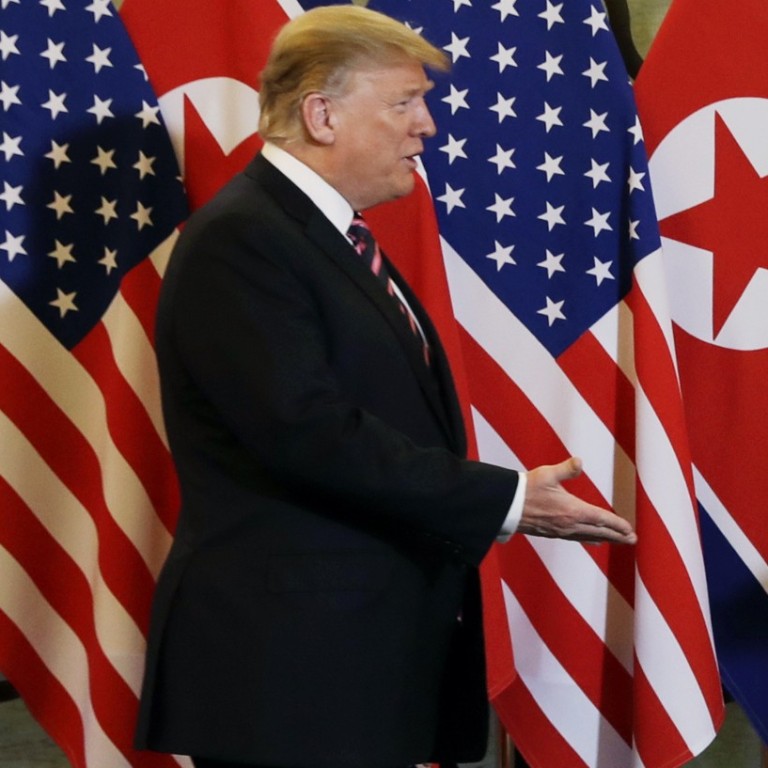
US urges Beijing to stick to hard line on North Korea sanctions as spotlight falls on three Chinese banks
- US court demands that banks open their books on trading with Pyongyang
- Washington has taken more hawkish stand on sanctions against North Korea
The United States has urged China to more strictly enforce United Nations sanctions on North Korea, demanding that three Chinese banks submit records to US officials investigating alleged sanctions busting.
Beryl Howell, judge for the US District Court for the District of Columbia, ordered the banks to hand over records of their transactions with North Korea, Reuters reported on Wednesday.
In a heavily redacted court opinion released by the US Justice Department on Tuesday and dated March 18, Howell said the subpoenas were for records of dealings between a now-defunct Hong Kong-based front company and a North Korean state-run business.
The court document did not include the names of the organisations.
The Chinese government had stakes in all three of the banks, two of which had branches in the US, it said.
The order was made under the Patriot Act, which enables the US Justice Department to subpoena foreign financial institutions and cut off their access to US correspondent accounts.
The sanctions have been imposed in response to North Korea’s nuclear weapons programme, which Washington says must be abandoned completely before the curbs can be lifted.
China is trying to balance that international pressure on the North with its concerns that a collapse in its neighbour’s economy could destabilise the region.
A few weeks after the US court demand was issued, China and North Korea opened a border bridge over the Yalu River connecting the Chinese city of Jian with North Korea’s Manpo in a potential boost to the North’s economy. Labourers and seafood products from North Korea were appearing across the border in the northeastern Chinese county of Hunchun, sources with ties to Chinese companies and North Koreans said.
China’s bridge to North Korea opens 3 years after it was built – but why now?
North Korean defectors are also another flashpoint in the China-US relationship.
In April, China detained seven North Korean defectors – including a nine-year-old girl – in the northeastern province of Liaoning.
Beijing, wary of allowing the flow of North Korean refugees into northeastern China to undermine either the struggling region’s security or the regime of leader Kim Jong-un, has stuck to a policy of sending defectors back.
Analysts at a forum for North Korea Freedom Week in Washington on Monday urged the US to implement extra sanctions against Chinese officials involved in repatriations, putting more pressure on Beijing.
When the dream dies: female North Korean defectors suffer prejudice in the competitive, self-absorbed South
Last month, the US put dozens of Chinese companies and universities on a Commerce Department “unverified list” and demanded extra diligence from US businesses in dealing with those organisations.
Those affected included 37 mainland Chinese companies and universities, many of which work in fields such as precision optics, electronics, machine tools or aviation.


